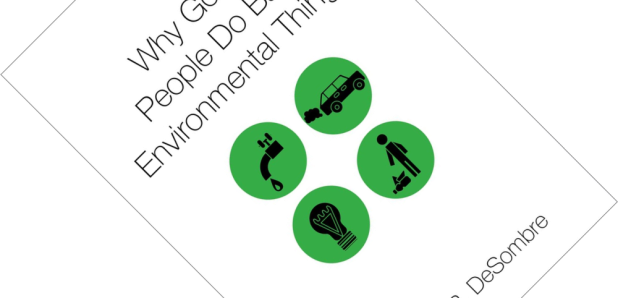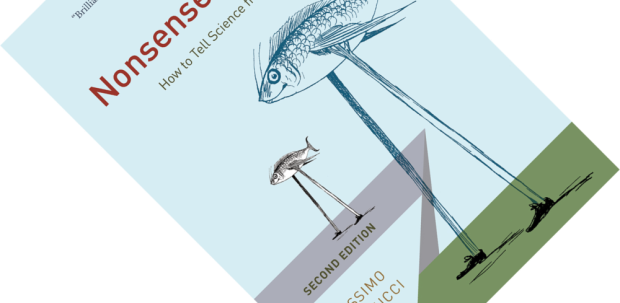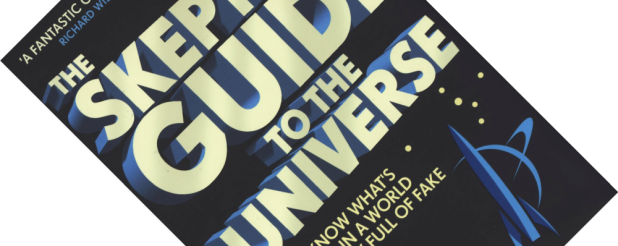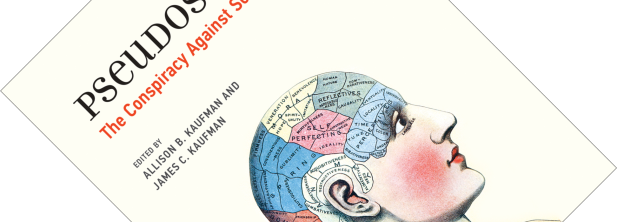If so many people are concerned about the environment, why do we still behave in ways that harm it? Many environmentalists will quickly argue that people just do not care or need more information. Professor of Environmental Studies Elizabeth R. DeSombre here argues that these answers are often wrong or incomplete. By considering research from a range of disciplines she is looking for a fuller explanation of why we behave the way we do. Only then can we hope to change how people achieve their goals in less destructive ways. And that, she daringly concludes, does not even require people to care about the environment.
psychology
Book review – Nonsense on Stilts: How to Tell Science from Bunk (Second Edition)
In a time of fake news and alternative facts, being able to separate the proverbial scientific wheat from the pseudoscientific chaff is vitally important. But seeing the wide acceptance of a lot of dubious ideas, critical thinking does not come easily. So, how, then, do you tell science from bunk? Updating his 2010 book Nonsense on Stilts, evolutionary biologist and philosopher Massimo Pigliucci once again attacks this problem from many sides. Going far beyond cheap potshots at pseudoscience, I found a book that takes an equally serious look at the more insidious phenomena of think tanks and postmodernism, with a healthy side-serving of history of science. The result is a readable introspection on what science is and how it is done.
Book review – Upheaval: How Nations Cope with Crisis and Change
The subtitle of this book could also be reworded as a question. How, indeed, do nations cope with crises such as war? With Upheaval, geography professor Jared Diamond puts forward a rather unorthodox suggestion for answering this question. Psychologists and specifically crisis therapists have gained a lot of insight into how individuals deal with and overcome crises in their personal lives. Taking a list of twelve factors that influence this, Upheaval is both a thought experiment and a piece of comparative history that tries to apply this framework to six nations that went through a crisis.
Book review – The Human Swarm: How Our Societies Arise, Thrive, and Fall
“Why, of all the species that have ever existed, have only us humans reached this unparalleled level of social organisation?” Sounds familiar? I indeed opened my review of E.O. Wilson’s recent book Genesis: On the Deep Origin of Societies with almost these exact words. Where that book (quite literally) fell a bit short of the intended mark, biologist Mark W. Moffett here delivers a sprawling big history book that considers almost the same question. Perhaps this should not come as a surprise, for Wilson has been Moffett’s mentor.
Book review – The Skeptics’ Guide to the Universe: How To Know What’s Really Real in a World Increasingly Full of Fake
If the design of the cover didn’t already give it away, the instruction to NOT PANIC on the dust jacket makes it clear this book is riffing on the famous Hitchhiker’s Guide to the Galaxy. And just as Douglas Adams’s book was intended to be an indispensable guide to navigating the galaxy, so The Skeptics’ Guide to the Universe is an indispensable guide to navigating a world gone mad with pseudoscience, alternative medicine, fake news, and conspiracy theories. Don’t let the book’s bulk put you off, this is an incredibly engaging read with a most humble outlook on life.
Book review – Blueprint: How DNA Makes Us Who We Are
When I opened this book and read its sales pitch (I paraphrase: “What if I told you of a new fortune-telling device that can predict psychological traits – it’s called the DNA revolution!”) I raised my inquisitive but sceptical eyebrow somewhat. Did I just pick up another piece of pop-psychology pulp? Oh boy, was I wrong! Behavioural geneticist Robert Plomin has written an incredibly interesting book with Blueprint, explaining how rapid advances in DNA sequencing technology are opening vast new vistas on the genetics underlying psychology. And is it ever so different, and more complex, than what hyped-up newspaper headlines have tried to sell us so far.
Book review – Pseudoscience: The Conspiracy Against Science
Fake news, alternative facts, misinformation. These buzzwords have been making headlines all too regularly in the last few years. Who to trust and how to tell apart well-executed science from bunk has become increasingly challenging amidst the information overload of our internet era. The edited collection Pseudoscience: The Conspiracy Against Science brings together 22 contributions that examine the problem of pseudoscience from a variety of perspectives. The unbelievable things people believe in may be easy to mock, but, as this book makes clear, they are no laughing matter.







